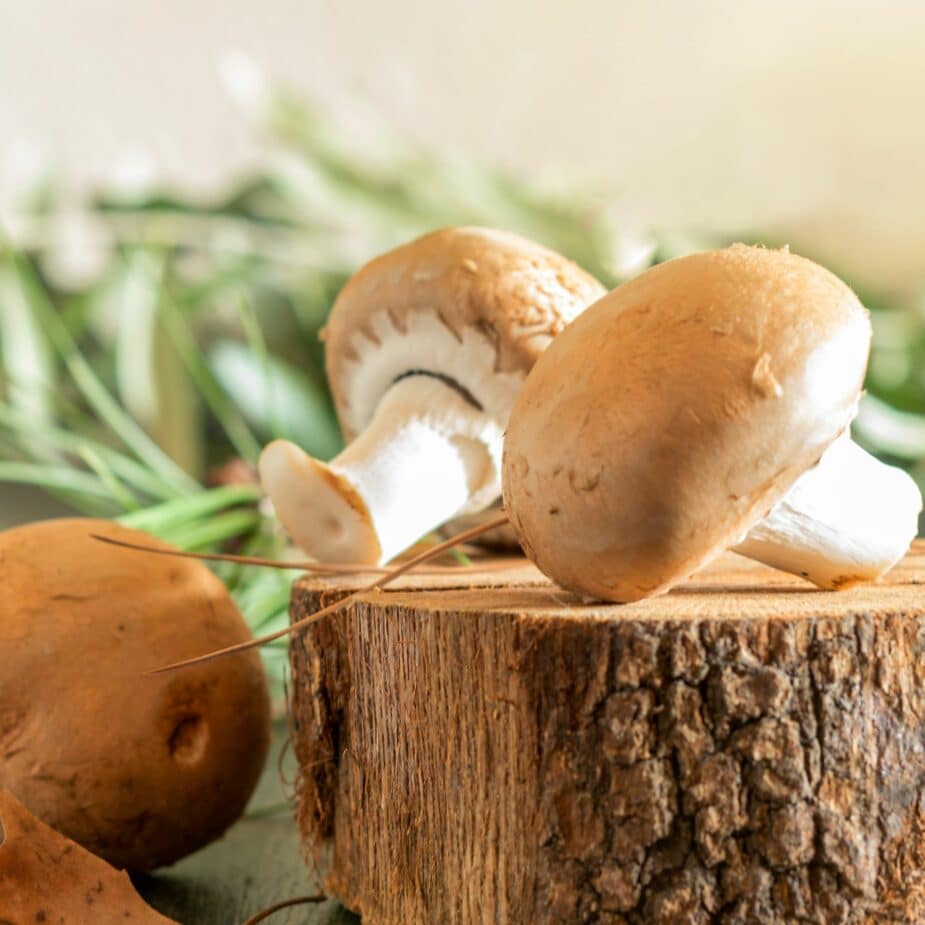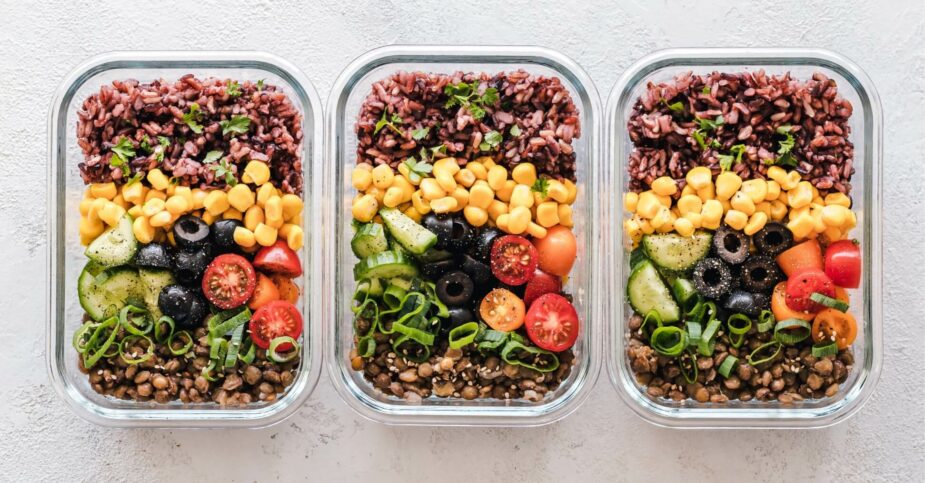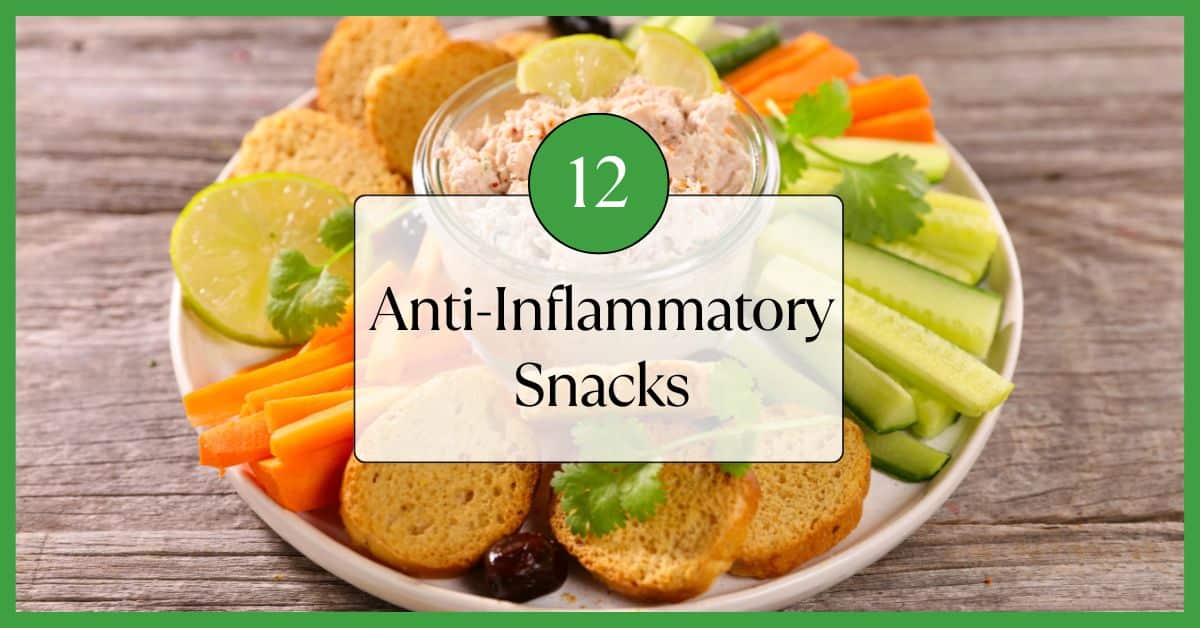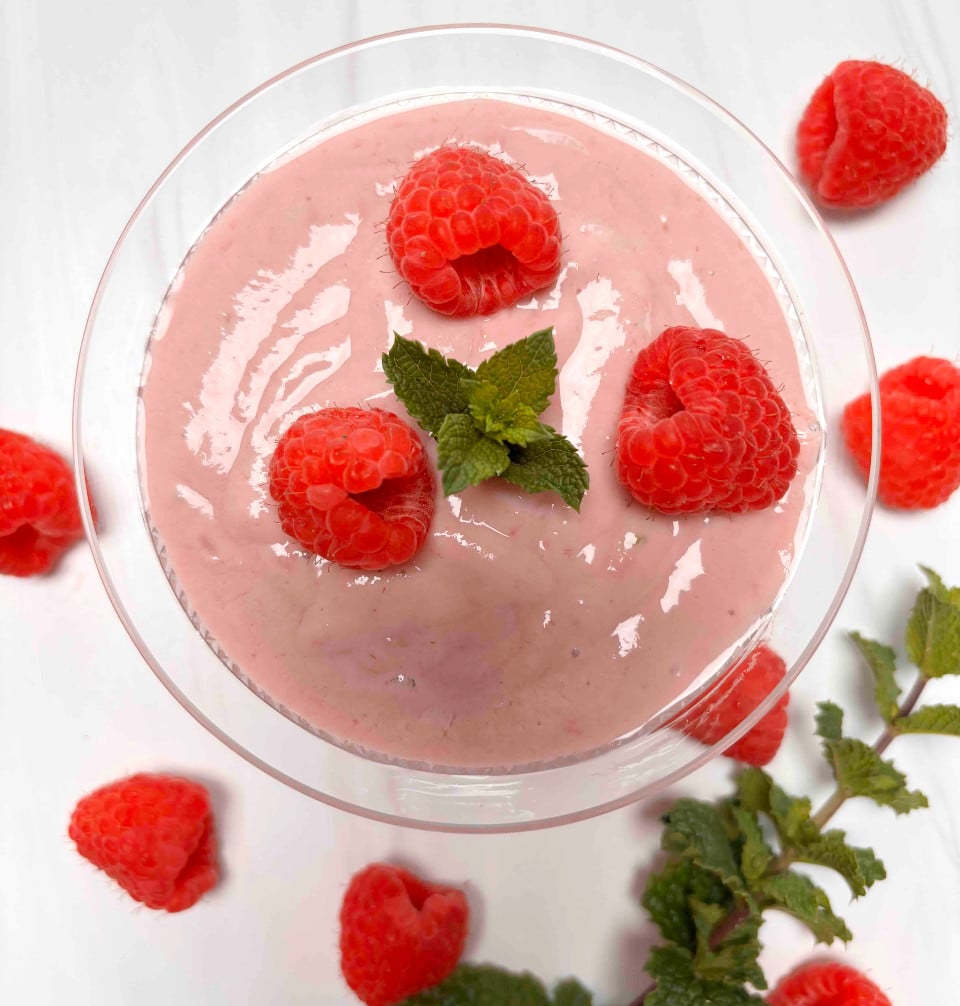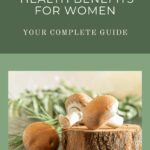Move over avocados and cauliflower because this year it’s all about mushrooms! From mushroom teas to mushroom jerky to mushroom chips, the health benefits of mushrooms are taking the world by storm.
There’s a lot to love about mushrooms. Did you know that they are a great source of antioxidants that help support our heart and brain health? While many of us think of heart disease as an issue for men, in fact, 1 in 3 women will be affected by heart issues and two-thirds of the people living with Alzheimer’s disease are women.
And that is just the beginning of the wonderful world of mushrooms and health benefits for women. They are rich in fiber, can be a natural source of vitamin D and they’re low in calories and carbs, making them a perfect addition for anyone on a quest for a healthier lifestyle. Hi, I’m Laura, a Registered Dietitian Nutritionist and official mushroom lover. In this post, I’ll explain why!
So, what are you waiting for? Let’s take a deep dive into the health benefits of mushrooms and how you can start adding more to your routine.
Table of Contents
Health Benefits of Mushrooms for Women
Whether you’re looking to improve your brain health, and heart health, support your immune system, or simply add more nutritious foods to your meals, mushrooms are a delicious and versatile ingredient to try. And no need to hit the specialty food store. Regular grocery store mushrooms are all you need.
There are many science-backed reasons women should eat mushrooms on a regular basis. Benefiting everything from heart health to brain health and gut health, mushrooms have been recommended for centuries to help with a variety of issues.
These common little fungi have some pretty remarkable health benefits! From supporting our immune system to reducing inflammation, and protecting our precious brain and nervous system, mushrooms are pretty powerful.1
Let’s start with the brain benefits, first.
Can mushrooms boost brain health?
Mushrooms contain a variety of compounds that may help reduce the risk of Alzheimer’s disease. Some research has suggested that people who eat at least 2 servings of mushrooms a week have lower rates of mild cognitive impairment, a condition that often precedes Alzheimer’s disease.2
Mushrooms are also an excellent source of copper, a vital nutrient in our brains. Babies need copper for their brains to develop properly and as we age it helps protect the blood vessels in our brains and nervous system.
While all mushrooms are a good source of copper, the most common variety, button mushrooms, are the best source, with cremini mushrooms coming in a close second! One more reason to order that mushroom pizza, am I right?
Research has also suggested that people who have higher levels of copper have lower rates of Alzheimer’s disease.3 While this is only observational research and doesn’t prove a cause/effect, I’d say it’s one more reason to add mushrooms to your grocery list.
Lion’s mane (also known as monkey head) mushrooms in particular seem to have some promise in helping with memory in Alzheimer’s disease. The studies to date have been small, but have shown some potential benefits in protecting cognition.4,5
Can mushrooms help with sleep?
As with health issues, mushrooms have been used for centuries to treat insomnia and fatigue. While research has yet to prove any significant effect, there may be something to it.
Mushrooms contain melatonin, a hormone that helps regulate our sleep and wake cycles. Eating foods rich in melatonin can help increase our natural levels of melatonin which may help with getting those elusive good nights of sleep as we age.6
As far as combating fatigue, there are a few possible mechanisms, including helping with blood flow and glycogen storage, but much more research needs to be done to understand how and why eating mushrooms may be able to give you a boost when you need it!7
Are mushrooms good for menopause?
Menopause brings with it some significant changes in a woman’s life. While you likely hear the most about hot flashes, sleep issues, and anxiety, there are other changes that can significantly impact a woman’s health.
While many of us think of heart disease as an issue for men, in fact, it is the leading cause of death in women and our risk increases after menopause. Because of their antioxidant and anti-inflammatory properties, a diet rich in mushrooms may help reduce the risk of cardiovascular disease and stroke.
Additionally, a study by the Culinary Institute of America found that swapping chopped mushrooms for some of the ground meat added so much flavor to the recipe that participants were able to reduce their sodium intake by 25%.8 This is a key to helping reduce blood pressure, which unfortunately can also creep up after menopause.
Lion’s Mane mushrooms contain phytoestrogens that are also found in soy products, daidzein, and genistein. Supplements with these isoflavones have been reported to help reduce hot flashes, improve bone mineral density, and reduce blood pressure.9 Early research in animals has also shown the potential for this mushroom to help reduce depressive symptoms associated with menopause.10
So, while much more research is needed in this area, if you are struggling with some of the side effects that come with age, why not toss a few mushrooms into your salad or on top of your pizza?
Can mushrooms help you lose weight?
For all the news about mushrooms and their health benefits, this is one area that often gets overlooked. Eating mushrooms for weight control just isn’t sexy, is it? But, there is some potential here.
These little guys are low in calories and with their high fiber content, especially soluble fiber, they have some satiating power. By swapping mushrooms for meat in just one meal a day, one study found participants were able to reduce their total energy intake for that day.11
In another small study of 73 people, substituting mushrooms for meat resulted in about 7 pounds of weight loss, and lowered waist circumference over a 12-month period.12
Long-term effects are not yet known, but it makes sense that swapping in some lower-calorie foods like mushrooms can help with weight control.
Can eating mushrooms reduce your risk of cancer?
Additionally, there is ongoing research regarding mushrooms and the prevention of breast cancer. Some research has suggested that in postmenopausal women, those who eat more mushrooms have a lower risk of developing breast cancer.13
Currently, research is underway to determine if mushrooms, or a compound within them, are able to block the supply of estrogen to hormone-dependent tumor cells in postmenopausal women.14 While there were some short-term, modest changes, conclusive evidence is definitely lacking. Still, it’s hard to resist the allure of incorporating mushrooms into your meals.
Are mushrooms good for your gut?
Did you know that the secret to good digestion could be as simple as adding beta-glucans to your diet? These soluble fibers are commonly found in grains like oatmeal and barley, but mushrooms are also a great source!
They provide nourishment for the beneficial bacteria in our gut and also help to strengthen our digestive system. If you suffer from gas and bloating due to irritable bowel disease, incorporating beta-glucans into your diet may just be the solution you’ve been searching for.
So far we’ve focused on mushrooms from your local produce section. But these days, you can find mushrooms in a variety of other products…even tea and coffee! Let’s explore those next.
Should you drink mushroom tea or coffee?
Mushroom coffees and teas are gaining popularity, but are they worth it?
Most mushroom coffees and teas use concentrated mushroom powders from a few varieties of mushrooms including Lion’s Mane and Reishi mushrooms. Mushroom teas have been enjoyed for centuries in Asia and are a traditional part of Chinese medicine to treat a variety of conditions. Mushroom teas are becoming more and more popular for their potential as an adaptogen and for the possibility of reducing stress.
Survey says: There is very little scientific evidence at this point to support any health claims. There is some evidence that adaptogens may help our hormonal response to stressful situations.
So, if you’re having a stressful day and enjoy mushroom tea, taking a break and sipping on a cup while reading may be a good way to take your mind off things.
What about Mushroom Supplements?
Can you get the same benefits if you take mushroom pills or extracts? While this post mainly deals with edible mushrooms, what about supplements?
You may have heard of reishi mushroom extract. While you can buy fresh reishi mushrooms, they’re not actually all that pleasant to eat so most people take them as an elixir, powder, or pill.
In fact, reishi mushroom is one of the most common types of mushroom supplements on the market. They are used as an alternative treatment for a variety of medical conditions. While there is little research to support their effectiveness to date, they are often used to support the immune system and reduce anxiety and insomnia.
Lion’s mane mushrooms are also sold in powdered form, for use as a tea, or in pill form for their adaptogenic, stress-reducing effects.
Please note: mushroom supplements may interfere with high blood pressure and blood thinning medications as well as some diabetes medications so anyone taking those should avoid mushroom supplements as well as mushroom teas and coffee.15
Are there downsides to eating mushrooms?
For most people enjoying mushrooms as part of a healthy diet is perfectly fine. There have been some reports of people experiencing an allergic reaction to mushroom supplements and pills but most people have zero issues with eating fresh and dried mushrooms from the grocery store.
What are the best ways to prepare mushrooms?
Mushrooms are full of umami flavor. Umami is a savory flavor that brings richness and depth to many dishes. This makes mushrooms an ideal ingredient to add to vegetables, meats, and whole-grain dishes.
- Ground beef sub. Some mushrooms are meaty and are a great replacement or substitution for meat. Portobello mushrooms are often used to either reduce the amount of meat in a dish or as a full-blown replacement. My blended burger recipe shows you how you can blend in some finely chopped mushrooms to replace some ground meat in a burger recipe.
- Stuffed. You can use mushrooms as a base for other ingredients, like stuffed mushrooms.
- Stir-fried. They are delicious in a stir fry and I often add them to casserole dishes to add extra veggies as well as flavor to the dish.
- Raw. You can eat mushrooms raw as part of a salad or sliced thinly and added to a sandwich or you can cook them with other ingredients.
- Sauteed. If cooking mushrooms, get the pan hot and then add the mushrooms and let them cook for a bit, allowing them to brown and then stir them. Starting with a hot pan keeps them from releasing too much water and turning soggy. They’ll be nicely browned and crisp instead!
Frequently Asked Questions
If you aren’t a frequent mushroom user, or even if you are, there are always a lot of questions (and myths) about how to choose them, clean them, and the best way to store them. Let’s dive into a few of the most common questions about mushrooms.
Yes, you should wash all produce under running water to get rid of bacteria. With mushrooms, it is important to pat them dry with a clean paper towel after rinsing to get as much of the moisture off as possible.
Raw mushrooms do not freeze well, but cooked mushrooms are fine to freeze. Just saute them in a little oil and store them in an airtight container or resealable freezer-safe bag, getting as much air out as possible. They will keep for about a month in the freezer.
Fresh mushrooms should be firm and smooth to the touch and not be discolored. They should smell a little earthy. If they are slimy to the touch, are discolored, or have soft, discolored spots on them, or an unpleasant odor, they are probably over the hill.
Look for mushrooms with a smooth, dry top and without blemishes. You should be able to see the gills and they should look fresh and firm, not mushy. If the mushrooms come in sealed containers they should have small air holes to allow the mushrooms to breathe.
You may have heard that mushrooms are a good source of vitamin D. That might be true if they were grown under ultraviolet (UV) light. Most mushrooms are grown in dark hot houses today so probably lack vitamin D, unless it’s marked on the package. Don’t despair! You can place your mushrooms under direct sunlight for an hour.16
Bottomline
While research is ongoing, there are many reasons why these little (not) vegetables are gaining popularity. As you see from above, they add more than just flavor to your meals. For women (and men) mushrooms have some potential powerful attributes that can help us stay healthy as we age.
Whether your goal is losing a few extra pounds, helping your GI tract stay on track, dealing with the side effects of menopause, or reducing your risk of heart disease and dementia, adding a handful of mushrooms to your meals is a good idea. Plus, they are delicious and easy to add to your everyday dishes.
If you want to include more mushrooms in your meals, check out some of my favorite recipes that incorporate mushrooms you can get at your local grocery store:
- Stuffed Mushrooms
- Pasta Bake
- Italian-Style Blended Burger
- Asparagus and Mushroom skillet
Be sure to sign up for my email list! I share nutrition, health information, and recipes to help support your brain health and give you ideas for aging gracefully and tastefully.
References
1 Muszyńska, B., Grzywacz-Kisielewska, A., Kała, K., & Gdula-Argasińska, J. (2018). Anti-inflammatory properties of edible mushrooms: A review. Food Chemistry, 243, 373–381. https://doi.org/10.1016/j.foodchem.2017.09.149
2 Feng, L., Cheah, I.K., Ng, M.M., Li, J., Chan, S.M., Lim, S.L., Mahendran, R., Kua, E.H., Halliwell, B., (2019). The Association Between Mushroom Consumption and Mild Cognitive Impairment: A Community-Based Cross-Sectional Study in Singapore. Journal of Alzheimer’s Disease. 68(1):197 – 203.
3 National Institute of Health. Copper. https://ods.od.nih.gov/factsheets/Copper-Consumer/ Accessed May 5, 2023.
4 Li, I. C., Chang, H. H., Lin, C. H., Chen, W. P., Lu, T. H., Lee, L. Y., Chen, Y. W., Chen, Y. P., Chen, C. C., & Lin, D. P. (2020). Prevention of Early Alzheimer’s Disease by Erinacine A-Enriched Hericium erinaceus Mycelia Pilot Double-Blind Placebo-Controlled Study. Frontiers in aging neuroscience, 12, 155. https://doi.org/10.3389/fnagi.2020.00155
5 Yanshree, Yu, W. S., Fung, M. L., Lee, C. W., Lim, L. W., & Wong, K. H. (2022). The Monkey Head Mushroom and Memory Enhancement in Alzheimer’s Disease. Cells, 11(15), 2284. https://doi.org/10.3390/cells11152284
6 Meng, X., Li, Y., Li, S., Zhou, Y., Gan, R. Y., Xu, D. P., & Li, H. B. (2017). Dietary Sources and Bioactivities of Melatonin. Nutrients, 9(4), 367. https://doi.org/10.3390/nu9040367
7 Geng, P., Siu, K. C., Wang, Z., & Wu, J. Y. (2017). Antifatigue Functions and Mechanisms of Edible and Medicinal Mushrooms. BioMed research international, 2017, 9648496. https://doi.org/10.1155/2017/9648496
8 Myrdal Miller, A., Mills, K., Wong, T., Drescher, G., Lee, S.M., Sirimuangmoon, C., Schaefer, S., Langstaff, S., Minor, B. and Guinard, J.-.-X. (2014), Flavor-Enhancing Properties of Mushrooms in Meat-Based Dishes in Which Sodium Has Been Reduced and Meat Has Been Partially Substituted with Mushrooms. Journal of Food Science, 79: S1795-S1804. https://doi.org/10.1111/1750-3841.12549
9Chen, L. R., Ko, N. Y., & Chen, K. H. (2019). Isoflavone Supplements for Menopausal Women: A Systematic Review. Nutrients, 11(11), 2649. https://doi.org/10.3390/nu11112649
10 Anuar, A.M., Minami, A., Matsushita, H., Ogino, K., Fujita, K., Nakao, H., Kimura, S., Sabaratnam, V., Umehara, K., Kurebayashi, Y., Takahashi, T., Kanazawa, H., Wakatsuki, A., Suzuki, T., Takeuchi, H. (2022). Ameliorating Effect of the Edible Mushroom Hericium erinaceus on Depressive-Like Behavior in Ovariectomized Rats. Biological and Pharmaceutical Bulletin. 45(10): 1438-1443. https://doi.org/10.1248/bpb.b22-00151
11 Cheskin, L.J., Davis, L.M., Lipsky, L.M., Mitola, A. H., Lycan, T., Mitchell, V., Mickle, B., Adkins, E. (2008). Lack of Energy Compensation over 4 days When White Button Mushrooms are Substituted for Beef. Appetite. 51(1): 50-57. https://doi.org/10.1016/j.appet.2007.11.007.
12 Poddar, K. H., Ames, M., Hsin-Jen, C., Feeney, M. J., Wang, Y., & Cheskin, L. J. (2013). Positive effect of mushrooms substituted for meat on body weight, body composition, and health parameters. A 1-year randomized clinical trial. Appetite, 71, 379–387. https://doi.org/10.1016/j.appet.2013.09.008
13 Hong, S.A., Kim, K., Nam, S.-J., Kong, G. and Kim, M.K. (2008). A Case–Control Study on the Dietary Intake of Mushrooms and Breast Cancer Risk Among Korean Women. International Journal of Cancer, 122: 919-923. https://doi.org/10.1002/ijc.23134
14 City of Hope Research & Innovation. “Mushrooms May Mean More Might for the Cancer Fight. https://www.cityofhope.org/research/superfoods-research/superfoods-mushrooms. Accessed May 5, 2023.
15 National Library of Medicine. Medline Plus. Reishi Mushroom. https://medlineplus.gov/druginfo/natural/905.html. Accessed May 5, 2023.
16 Cardwell, G., Bornman, J. F., James, A. P., & Black, L. J. (2018). A Review of Mushrooms as a Potential Source of Dietary Vitamin D. Nutrients, 10(10), 1498. https://doi.org/10.3390/nu10101498

